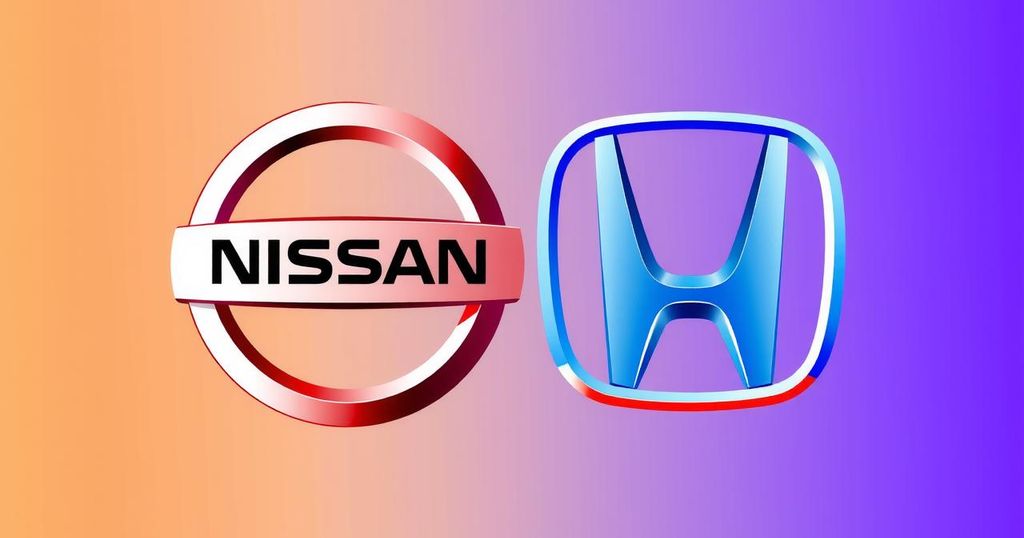Nissan and Honda Initiate Merger Talks to Form Third-Largest Automaker

Nissan and Honda are pursuing a merger to create the world’s third-largest automaker, with Mitsubishi Motors also joining the discussions. They plan to establish a joint holding company, led by Honda, to enhance competitiveness as the market shifts towards electric vehicles. Target completion for the merger is set for August 2026, amidst challenges faced by both companies.
Nissan and Honda are initiating discussions for a merger that would position them as the world’s third-largest automaker by sales. A memorandum of understanding was signed, which includes Mitsubishi Motors in the integration talks. This merger aims to address the competitive landscape as traditional automakers adapt to shifts towards electric vehicles, especially amid growing competition from companies like Tesla and BYD.
Honda’s CEO, Toshihiro Mibe, announced that both manufacturers plan to establish a joint holding company led by Honda. The goal is to finalize the merger agreement by June, with completion and stock listing anticipated by August 2026. Specific financial details are not disclosed, but there are several critical aspects that still require careful evaluation, including the implications of potential non-implementation.
If successful, the merger could yield a combined entity valued at over $50 billion, enhancing their competitive stance against industry giants like Toyota and Volkswagen. Currently, Nissan, Honda, and Mitsubishi together aim to produce approximately 8 million vehicles, compared to Toyota’s 11.5 million.
Both Nissan and Honda have recognized the necessity for bold strategic changes to lead in the evolving auto industry. Currently, they share plans regarding electric vehicle components and research for autonomous driving. The integration could leverage Nissan’s expertise in electric vehicles and hybrid powertrains, benefitting Honda’s future developments.
Recent challenges for Nissan include declining stock prices and staffing cuts, alongside a negative credit outlook from Fitch Ratings. Despite this, Nissan maintains strong cash reserves. Trade analyses indicated a potential stock price increase for both Nissan and Honda amidst merger discussions. The merger signifies a larger trend of consolidation in the automotive industry, underscored by the demand for technological advancements, particularly in batteries and software.
The proposed merger between Nissan and Honda, with support from Mitsubishi Motors, reflects a strategic approach to enhance competitive capacity in the automotive sector amid transformative changes toward electrification. The establishment of a joint holding company aims for operational efficiency and innovation. However, several uncertainties remain in the merger’s details and implications, signalling a cautious yet potentially significant step in the industry landscape.
Original Source: apnews.com





